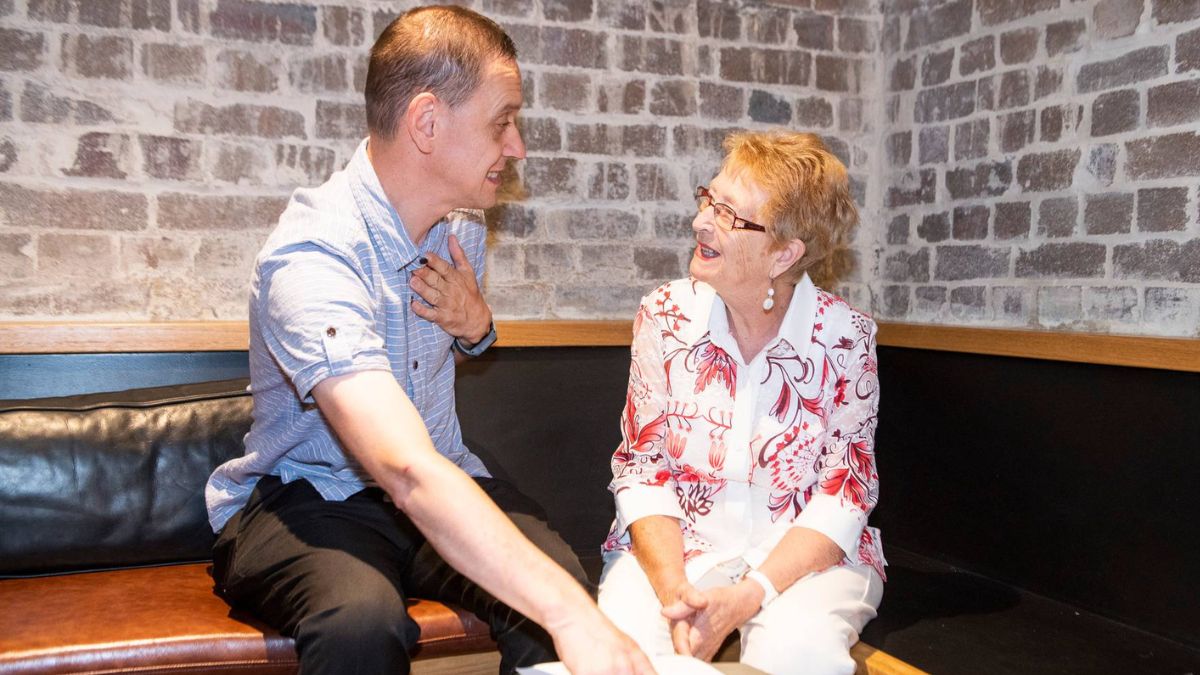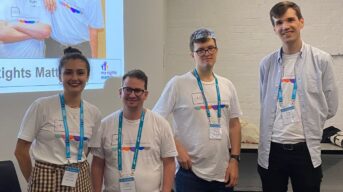
Supported Decision Making and Guardianship – Disability Royal Commission Final Report
The Disability Royal Commission calls for more independence for people with disability through supported decision making (SDM).
CID Project Worker Ricky Kremer told the Royal Commission:
Decision making is a human right. Human rights means that everyone in the world has value… it means to have control over my decisions, with or without support and adjustments.
Adjustments means making a change to get a fair result. So, they help to meet the needs of a person. An individual adjustment may be using a communication device to say a choice. A bigger system adjustment may be changing a policy to say people have the right to make their own legal decisions with support.
We need investment in people with disability, less guardianship and more supports.
People will gain confidence to do it themselves. And if they can’t do it themselves, they should get support with their decisions.
What the Commissioners said
People with disability have the right to make decisions and the right to support and adjustments. This includes the right to support to make legal decisions.
People with disability are unable to access their decision making rights when substitute decision makers have been appointed. The Royal Commission revealed data that showed increased appointments for guardians and financial management orders for people with disability since the roll-out of the NDIS, despite the scheme’s goal for increasing choice and control. Guardianship is not being used as a true last resort.
There is an over-reliance on appointing substitute decision makers to solve other administration problems like signing off restrictive practices authorisation.
Law, policy and systems need to change for supported decision making to happen. Changes to guardianship and administration laws are needed.
People with disability should be assumed capable of making their own decisions. They need to be at the centre of their own decisions and have access to formal and informal supporters to help make sure their will and preferences are respected and upheld in a supported decision making process. They need access to accessible information and other adjustments to help them make their own decisions.
Service providers need more information, guidance and training on supported decision making to improve the way people with disability are supported in day-to-day decisions.
What the Commissioners recommended
The Royal Commission recommended a new supported decision making framework with 10 principles (SDM framework principles) for each state and territory to adopt and guide a nationally consistent approach to change. They recommended:
- reviewing and reforming guardianship and administration laws to reflect the SDM framework principles
- reviewing and reforming other laws about individual decision making to give legislative effect to the SDM framework principles
- systemic advocacy for promotion of supported decision making information, education and capability building through state agencies
- updating the NDIS Quality Indicators and NDIS Practice Standards to reflect participants’ entitlement to support for everyday decisions
- co-producing practice guidance for service providers on supported decision making, consistent with the NDIS SDM policy and SDM framework principles.
Commissioners recommended that guardianship law reforms include provisions to appoint formal supporters, and representatives appointed only as a true last resort. They said people with disability should have the opportunity for appointments to be reviewed, and recommended guidelines for maximum participation by people with disability in tribunal processes.
Commissioners said all appointed supporters should follow a decision making process based on a person’s will and preference. They said that changes to law should adopt consistent strength-based language such as the assumption of decision making ability and reflect a human rights approach to disability and decision making. Commissioners said changes to law should be culturally sensitive and use a co-design process with people with cognitive disability, their supporters and representative organisations.
What CID says
CID is pleased to see many positive recommendations about supported decision making and guardianship law reforms. The majority of these recommendations sit in the Autonomy and Access section of the Commission’s report. This reflects the importance of supported decision making as a practice that opens the door to a person’s autonomy, rights and freedom to make decisions, to control their life and exercise choice – when they get access to the support they need.
One additional reform that CID advocates is for universities and TAFE colleges to teach supported decision making.
CID have been leading advocacy for action on supported decision making and NSW Guardianship law reform and has led many projects to progress supported decision making practice developments in NSW. We have co-produced CID’s Supported Decision Making Framework with people with intellectual disability and have established an online Supported Decision Making Hub where people can sign up to CID’s activities to learn about supported decision making through the My Rights Matter project. This includes resources, training, grants for innovation, and trialling change tools such as CID’s SDM Organisation Self-reflection Tool.
CID also won NSW Government commitment to establish the NSW guardianship law reform working group in 2023. CID is represented on the working group.
We urge the NSW Government to take immediate action on the Royal Commission’s recommendations.



 1800 424 065
1800 424 065 














